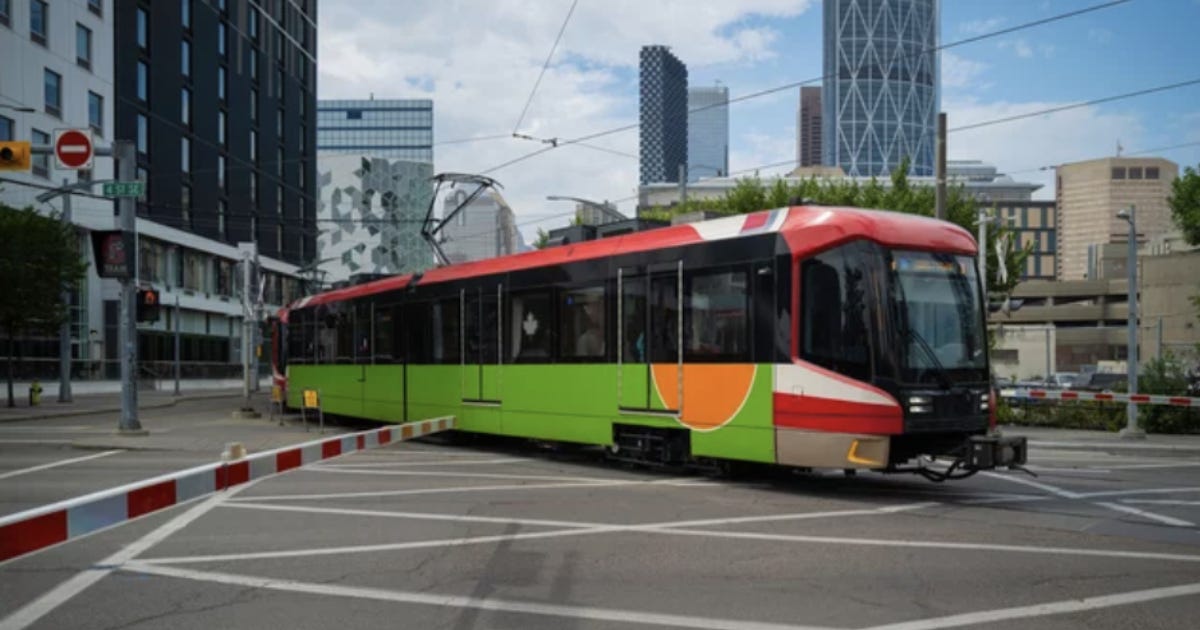Calgary to buy 120 electric buses despite costly failures in other cities
A taxpayers’ group is warning that Calgary risks repeating the expensive failures of other Alberta cities after it announced it will purchase 120 new Canadian-made electric buses starting in 2027.
A taxpayers’ group is warning that Calgary risks repeating the expensive failures of other Alberta cities after it announced it will purchase 120 new Canadian-made electric buses starting in 2027.
The city announced on Friday that the Nova LFSe+ buses from Quebec-based Nova Bus will replace ageing diesel models and expand service.
“This investment means more reliable service, lower operating costs over time and cleaner air in our communities,” said Calgary Transit Director Sharon Fleming. “It also allows us to grow our fleet in a cost-effective way and prepare for future service demand.”
The City of Calgary outlined four key benefits for this bus purchase. Firstly, the city said that it can purchase more buses due to federal support for electric purchases. The city added that it would diversify its fleet, “mitigating long-term fuel cost risks,” and create construction jobs.
Absent federal funding, electric vehicle sales across Canada have collapsed. After federal rebates ended in January 2025, EV sales in Canada plunged over 41 per cent in a month, while gas vehicle sales surged.
Other municipalities in Alberta have seen major losses of public funds through their decisions to try and add electric buses to their fleets.
Edmonton spent $60 million on buses from now-bankrupt Proterra, with the majority of buses inoperable and a maximum range of just 117 kilometres, less than a quarter of the 482 km initially advertised.
St. Albert’s fleet also underperformed, with the lifespan of its BYD buses dropping from 18 years to 12, alongside battery and charging failures.
Canadian Taxpayers Federation Alberta Director Kris Sims warned the move could lead to another costly boondoggle.
“A chill went down my spine because, of course, we saw the fiasco that happened up in Edmonton, where they spent millions of dollars on electric buses that didn’t work,” said Sims. “The bureaucrats up at Edmonton City Hall even tried purchasing for thousands and thousands of dollars little battery blankets so they could snuggle up the batteries in winter. That still didn’t work.”
While the city advocated for this decision by citing federal funding, Sims reminded Calgarians that “there is only one taxpayer.”
She added that the City of Calgary is run and paid for by taxpayers.
“And so it is incumbent upon the staff to make sure they are getting darn good value for taxpayers’ money here. We don’t think that they’ve passed that test. We’re very concerned that this might wind up with another boondoggle,” she said. “I hope for the sake of Calgary taxpayers that these buses are awesome, that they work amazingly in all types of weather, that they’re better than the previous buses, because that would be a huge win for taxpayers. Unfortunately, we currently have experience and evidence to the contrary.”
Residents of Calgary previously came up with five cost-cutting ideas for Mayor Jyoti Gondek.
One of those ideas was to stop pursuing the economic pitfall of electric buses.
Calgary had previously spent $325.2 million in federal dollars to purchase 259 electric buses. They ordered them from Vicinity Motor Corp, which dropped below two cents by November 2024, a share from its peak of almost $13 and was expected to be pulled from the stock market altogether. As of Monday, the stock price is $0.00010 (one one-hundredth of a cent). The buses were never delivered.
With Calgary’s municipal election coming up on October 20, Sims said this announcement could work against Gondek.





Kick Backs R Us.
The city of Edmonton bought a fleet of electric buses, and they sat there all winter because they can’t be used in freezing, cold temperatures! These mayors and council are totally woke, and abusing taxpayers money for their ideological craziness!